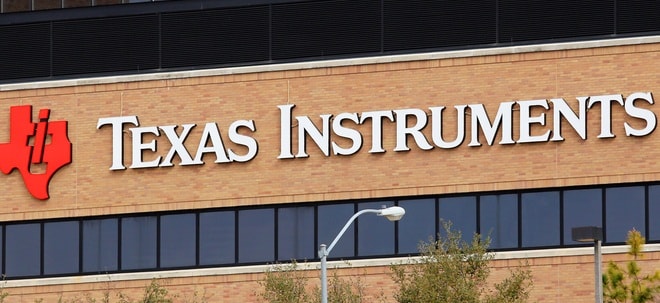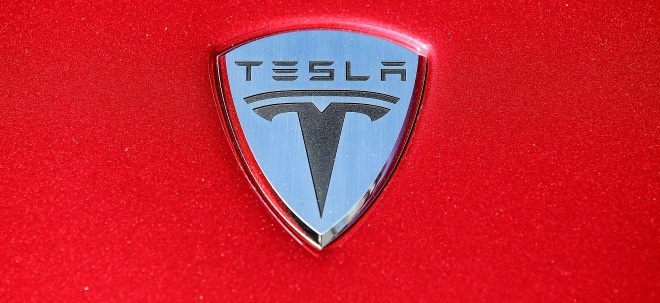Mixed Signals
Ericsson dominates the wireless-equipment market. Handsets are another story
By Richard Evans
The genie is out of the bottle when it comes to wireless communications, and there's no putting it back in. This year an estimated 425 million wireless phones will be sold worldwide. And as microchips grow smaller and batteries grow more powerful, wireless operators everywhere are preparing for the next generation of wireless equipment, which could increase data speeds as much as 200-fold. Fast connections will, in turn, open the door to the wireless Internet. By the end of 2003, industry experts predict there will be more phones hooked up to the 'Net, worldwide, than PCs, unleashing a torrent of wireless e-commerce.
Building out the infrastructure for the wireless Internet will cost money -- big money. J.P Morgan predicts the world's telcos will spend up to $200 billion during the next four years building 3G, or third-generation, wireless networks. Today it is not a U.S. or Japanese conglomerate that dominates the huge and growing wireless infrastructure business, but rather Sweden's L.M. Ericsson Telephone, an early telephone and telegraph pioneer founded in 1876. With a 30% global market share of today's existing wireless systems and an estimated 50% share in new contracts to develop tomorrow's 3G networks, Ericsson has succeeded by a combination of business vision and solid engineering.
"Our mobile-systems business is growing at 40% a year and we are the size of the next three largest competitors," claims Ericsson President Kurt Hellstrom, appointed to the top job a year ago. "We think we can further increase market share over Nokia, Motorola and Lucent Technologies." That's tough talk, but with a basis in fact. Analysts maintain that Ericsson has won part or all of 16 of the 21 3G contracts agreed to so far, including a $1.3 billion deal with Germany's Mobilcom. It has also earned the envious position as lead supplier to Vodafone, the world's largest mobile-phone operator. Demand will rise in coming years as perhaps 100 major wireless operators build thousands of earth transmission stations worldwide in order to expand their international mobile-phone coverage.
Hellstrom: "We think we can increase market share in mobile systems."
Unfortunately, Ericsson's reputation has been tarnished by its inability to turn around a once-profitable consumer-goods division, which will manufacture some 45 million mobile phones this year, around 11% of the world market. While producing in such volumes should be profitable, the company expects to lose around $1.9 billion in mobile-phone handsets this year, according to estimates by J.P. Morgan. That's a huge loss for a division that accounts for only around 20% of the firm's expected $30 billion in total sales this year. And it offsets more than half of an anticipated $3.9 billion operating profit by the company's successful mobile-systems division and other businesses.
By contrast, analysts project operating profit of $4.8 billion on sales of $25 billion for Nokia for the current year. Nokia's and Ericsson's positions in their two key markets are virtually mirror images. For while Nokia dominates the world handset industry with 34% market share, it has managed to grab only 11% of the mobile-systems market.
Trading at a recent 10.75, Ericsson's American depositary receipts are off more than 55% from their March high of $26.31. And the worst may not be over. "Given management's guidance, we expect that losses in the fourth quarter may be double what they were in the third," says Brantley Thomson, head of J.P. Morgan's European communications-technology team.
While firmly believing in Ericsson's continuing leadership as a builder of wireless transmitters, earth stations and other heavy infrastructure, Thomson wonders if the company can ever succeed in handsets. "Their engineers have continually tried to create leading-edge phones that are better than everybody else's," he explains. The trouble is, the company has been chronically late in getting to market with its new phones. So rather than being able to skim the cream off the market, charging high prices for the latest innovations, it has to match the prices of its competitors, whose products are already moving fast down the cost curve.
"The Volvos of the phone world"
Such enormous price erosion is crippling in a business where even Ericsson's management admits they will probably never be able to post more than a 10% profit on selling handsets. (By contrast, Ericsson's wireless-system margins are a healthy 25%.) The company has lost more money trying to adapt over-engineered phones for the entry-level market rather than designing cheap and cheerful products right from the start. And while Ericsson has traditionally turned out phones that look bland and chunky ("sort of the Volvos of the phone world," quips one critic), Nokia has developed a steady stream of sleek and colorful phones that appeal to the sweet spot in the market, hip young consumers. To stem the tide, the Swedish electronics giant has appointed a new management team staffed by marketing and design experts rather than engineers. And the company's top executives are expressing a new sense of urgency about doing the fix in a finite period. "By next summer we have to break even in handsets," stresses Ericsson's marketing chief, Torbjorn Nilsson. "We realize there is not a lot of time."
"Their new strategy is solid, and they are making the right moves," concedes Sean Faughnan, European wireless analyst with Goldman Sachs, "but the question is whether it's now too late for them to go it alone. My guess is that it is." Faughnan believes Ericsson's only choices may be to find a joint-venture partner such as Sony, which combines brand strength, strong designs, consumer savvy and worldwide distribution, or to get out of handsets altogether. The latter, however, seems unlikely, as operators migrating to 3G networks may demand that their infrastructure providers also supply them with handsets to ensure compatibility.
"We've had so much bad news that any positive developments, like the announcement of a joint venture, could push the stock up by 20% or more," believes John Bennett, investment director for European markets at London-based Global Asset Management. Already a holder of Ericsson stock, Bennett plans to go overweight in the first half of 2001. "This could turn out to be one of our biggest positions," he predicts.
"I'm a long-term fan of Ericsson," Bennett adds. "In 2001 they'll either fix the problems in handsets or joint-venture them out. One way or another, they'll put this behind them. But the main attraction in the company is that I see their mobile-systems business growing by 25%-30% over the next four or five years." He believes the stock can double over the next two years, provided the current strong momentum in new orders and contracts continues.
Two main factors will determine how full Ericsson's order book will be over the next year or two: the telcos' continuing ability to finance the build-out of their networks, and the eventual level of consumer demand for wireless data services.
We are likely to get a picture of how the rollout of 3G services will unfold over the next six months or so, as 50-60 major 3G contracts go out from the likes of Deutsche Telekom and Sprint. That's about all the time the newly licensed carriers will have to begin next-generation network development if they are to keep pace with the established Japanese and European leaders, which are already developing their new wireless infrastructure.
And therein lies the rub. Credit Lyonnais Securities Europe predicts that carriers may have to spend as much as $140 billion for their licenses. Add to that the $200 billion cost of building out the systems and the financing strain could slow the process considerably. Indeed, the debt markets have all but shut down for financing telecom infrastructure. And the pressure on the equipment makers from financing their customers has already begun to take a toll. Uncertainty over the quality of Lucent's loans to its customers is one of the factors that has driven Lucent's shares down by more than 80% ("Loan Moans," September 4).
"Logically you would expect operators to finish building their new networks as quickly as possible so they can launch their new services and start to make money from them," says Susan Anthony, wireless industry analyst with Credit Lyonnais Securities. "But no one really knows for sure what will happen."
The demand side, however, is far clearer. We've already gotten a preview of 3G in Japan, where NTT DoCoMo is offering its iMode services, which deliver data speeds that are 12 times as fast as current wireless services. Up and running since February 1999, iMode, which offers always-on Internet service, has already attracted 11 million subscribers -- 58% of Japanese wireless users -- and is adding subscribers at a rate of 300,000 a week. And with the first full-blown 3G networks set to appear in Japan in the spring of 2001 and in Europe at the end of 2002, all of the major wireless-equipment makers are attempting to hop on the bandwagon. "It's all a great land grab," says Robert Gensler, telecommunications fund manager with Baltimore-based T. Rowe Price, "and Ericsson is the clear leader."
Adds Marc Cabi, senior wireless equipment analyst with Credit Suisse First Boston: "The technology standards that Ericsson has created will almost certainly become the standards for tomorrow. The carriers have already paid so much money that the last thing they want will be any kind of revolutionary new technology which will require further adaptations or slow their time to market." Given that scenario, the likely outcome is that today's market leaders, Ericsson and Nokia, will continue to gain share against second-tier players like Alcatel, Lucent and Motorola.
In the meantime, President Kurt Hellstrom must contend with Ericsson's handset problem. In a recent interview, Barron's asked if he would bite the bullet and sell or joint-venture the business. "Sure, we are talking to people," Hellstrom said. "Everyone is talking to everyone." Any such announcement would surely give a healthy boost to the company's flagging stock. Beyond that, the company's firm grasp on the wireless infrastructure business could make Ericsson a smart stock to own over the long haul.
|


 Thread abonnieren
Thread abonnieren

